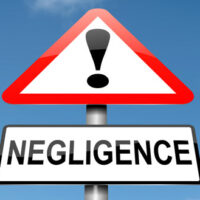The Role of Negligence in Personal Injury Claims

You were injured in a car accident. You were driving along when another driver ran a stop sign and T-boned you. Sure, that may be clear to you, but for legal purposes, you will have to prove negligence.
Negligence is the most common basis for personal injury claims. A person who is negligent fails to behave with the same level of care that a typical person would have exercised under the same circumstances.
Negligence consists of four elements:
- Duty of care. The plaintiff will need to establish that the defendant owed them a duty of care. Duty of care is evident in doctor-patient relationships, but drivers also have a duty of care to drive safely.
- Breach of duty. A person breaches their duty when they fail to act with reasonable care. They need to act as a reasonable person would in the same situation. For drivers, this means not speeding or driving drunk.
- Next, the victim will need to prove that the person breached their duty and this caused them to suffer injuries. Even if there is a drunk driver on the loose, they cannot be blamed for an unrelated accident. Also, this element involves some degree of foreseeability. The defendant should have known that their actions would have led to harm. A random or unexpected act of nature would not qualify.
- In order to recover compensation, a person will need to prove that they suffered damages. A person suffers damages if they are injured or suffer some sort of financial loss. Damages for personal injury may include medical expenses, lost wages, pain and suffering, and mental and emotional distress. Even if a person is breaking a law, there has to be damages involved. For example, a speeding driver does not owe anyone damages unless they cause a crash and injure someone.
When all four elements apply, the person will be legally liable for any resulting harm. Assessing and determining fault is a strategy used in most disputes involving an accident or injury.
Proving Negligence
To prove negligence, you will need to do the following:
- Gather evidence. Photos, witness testimony, and police reports can all be used to help prove your case. Any property damage can also be used as evidence.
- Compile medical bills. Medical bills can show the severity of a person’s injuries. When you obtain copies of your medical bills, you can add up all the amounts. This can help you arrive at a number for monetary damages.
- Get doctor testimony. Expert witnesses have a great impact in lawsuits, as they have both the reputation and expertise to fight back against the defendant’s attorney. That’s why you should ask your doctor to testify on your behalf. They can state the facts pertaining to your injuries.
Contact a Personal Injury Lawyer
Negligence is the main factor in every personal injury case. To hold a person or entity responsible for an action, you must be able to prove fault.
Count on a Houston personal injury attorney from The West Law Office, PLLC for help with your case. If someone’s reckless or careless behavior caused you to suffer injuries, we can gather evidence and help prove negligence. To schedule a free consultation, fill out the online form or call (281) 347-3247.
Source:
law.cornell.edu/wex/personal_injury
